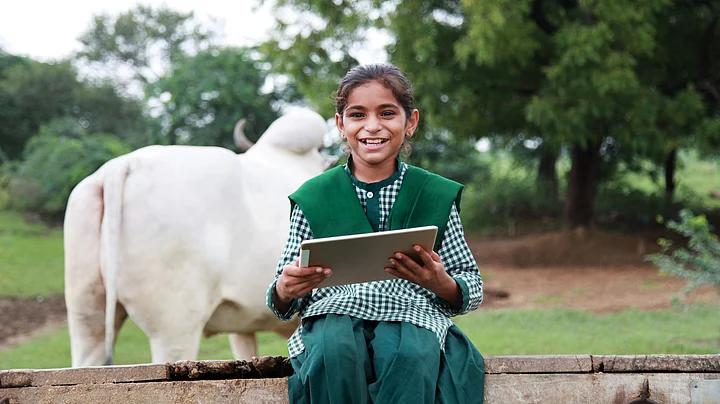(This is an opinion piece and the views expressed below are the author’s own. The Quint neither endorses nor is responsible for the same.)
Let’s go back to the time when Facebook first made its entrance in India. Most people didn’t have computers at home – and they would end up travelling a few kilometres just to reach a cyber cafe and access social networks. Instant messages and emails received slower replies and even owning a mobile phone was a luxury for the youth. Cheap mobile data was unheard of.
In just a little over a decade, the scene in India is completely different. Every other person, especially in urban areas, has access to mobile phones and laptops. India has one of the cheapest mobile data plans in the world. This has revolutionised the way mobile phones are used, even perceived.
Today, mobile devices have gone beyond their primary role of interpersonal connectivity. Today, mobile devices are a mode of convenience, entertainment, consumerism and education.
Initially, the term e-learning was only used in the context of large scale MNCs helping their employees learn on the go by eliminating classrooms. In the span of a few years, of the 300 million school going students, several million have registered themselves on e-learning apps.
So how is internet connectivity helping Indian students learn better for better results?
Accessibility:
In a traditional learning setup, quality teachers, books, and infrastructure are only concentrated in metros and education hubs. With the internet becoming easily affordable, eLearning apps leverage this connectivity to ensure that every child in in the country has access to high-quality teachers. Using live classes, children can watch India’s best teachers explain complex concepts, ask questions, and get them answered in real-time.
Personalisation:
The teacher-student ratio in Indian classrooms is extremely skewed, with one teacher for about 30-35 students on average. This number gets worse in tier II and III cities. Due to this, teachers cannot give students any personal attention. They use a one-size-fits-all approach for every child, without considering their aptitude, grasping power, strengths, and weaknesses. Due to India’s vast population and weak infrastructure, it is a mammoth task to improve this.
However, this can be easily resolved using edtech. Leveraging internet connectivity, edtech apps are personalising practice sessions for millions of children. Using advanced technology like artificial intelligence and machine learning, edtech apps study individual student behaviour.
Using this data, they start every student’s practice at a level that they’re comfortable with. The difficulty of questions is then increased until the student meets their individual learning goals.
24x7 Instant Doubt Resolution:
One of the key hindrances in every student’s learning journey is doubts. In a classroom set up, students end up waiting for weeks, if not months until the teacher completes the syllabus and then organises doubt-solving sessions. The end result is that the student’s learning journey is affected and so is their understanding of not just the topic in question, but other topics as well. They end up rote learning these topics, but this does not help when they appear for national level board or competitive exams.
Using internet connectivity, learning apps have created a chat platform where students can ask their questions. They are instantly connected to an expert who resolves their doubt for them in under a minute.
In fact, this platform, often called Live Doubts or Doubts on Chat has become so popular, that edtech apps are using natural language processing to create a bot that can answer student doubts instantly, based on the millions of questions asked earlier. If the bot cannot find an answer, or if the student has any further questions, the student can choose to chat with a live expert. As of now, over 25 percent of all doubts are solved using this bot.
Internet is bringing a revolution in every industry across India. From booking a cab to movie tickets, groceries, and games – every industry has undergone a major shift for the better. It’s now time for parents to embrace edtech and help their children learn better.
(Zishaan Hayath is the Founder and CEO of Toppr, a learning app that provides personalised learning for students studying for boards, Olympiads, and various engineering and medical competitive exams.)
